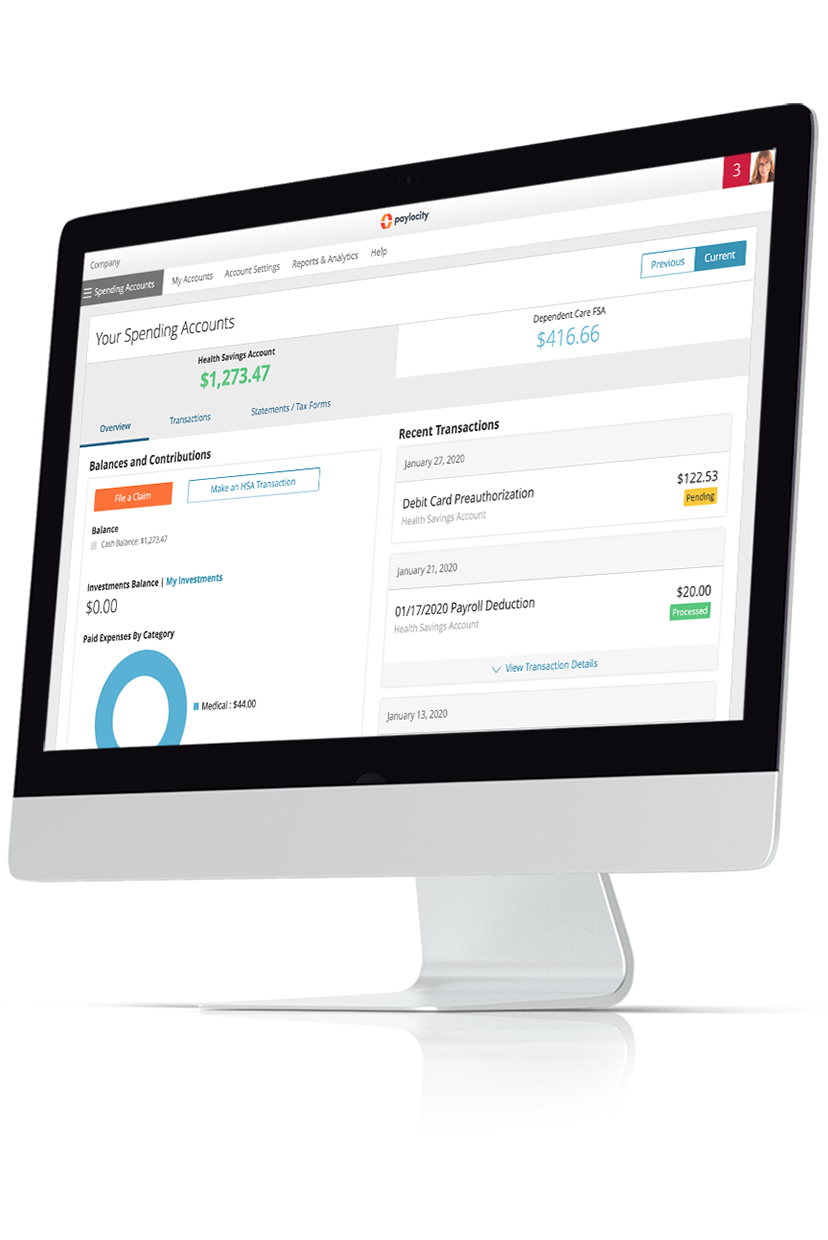resources
The 14 Best Employee Benefits to Dazzle Your Talent
August 21, 2023
Benefit offerings can be an essential asset in your recruitment and retention strategy. Uncover which benefits can have the largest impact.
Blog Post

Think about the last vacation or big family trip you took. As you twirled around the teacups at Disneyland or admired the scenic splendor of the Grand Canyon, did you think about how much it cost to get there the whole time? Or were you enjoying the experience too much to care?
For many of us, money is simply the means to an end. Yes, of course, as employers and HR professionals, we need to make sure our companies offer an attractive salary — nobody looking for a job in a competitive market is likely to take the lowest offer. But employee benefits are invaluable when it comes to keeping our people happy and staff retention high.
In other words, it’s no good offering a killer wage if your lack of benefits keeps the employee turnover rate through the roof. Replacing an employee can cost up to two times that employee’s salary and can damage employee morale. Basically, you want good people, and you want them to stay.
So, what are the most effective employee benefits in today's market? Glad you asked! Let’s examine all the wonderful perks that will make you irresistible to any promising candidate.
Benefits in the Workplace: 14 Ways to Make Your Company Irresistible
Competitive pay and health benefits have long been attraction and retention drivers. But now that employees are seeking a more holistic employment experience, you should think beyond conventional offerings to stand out in a highly competitive employment market.
Let’s look at the best traditional and not so traditional employee benefits that make a difference to prospective and existing talent.
1. Health Insurance
If there was ever something that perfectly encapsulated the phrase “actions speak louder than words,” it’s employer-provided health insurance. Lots of companies say they care about their employees, but there are few better ways to prove it than giving them and their families peace of mind when it comes to their health.
This rings even more true in the long term as workplaces fill up with younger generations — 42% of Gen Z and 30% of Millennial employees said they had considered switching jobs purely for better healthcare benefits. This is compared to just 18% of Gen Xers and 6% of Baby Boomers.
Offering health insurance plans is great for your employees, but they aren’t the only ones who benefit. Healthy workers take fewer sick days and tend to be more productive — so it’s good news for you, too.
To set your company apart, also consider offering supplemental health benefits like dental and vision insurance. This type of care isn’t covered by every healthcare plan, so it might be the difference-maker for that candidate you really want.
These supplemental benefits also provide a shot in the arm for your employees’ long-term productivity. Imagine trying to concentrate on an important project with a horrific toothache or making a costly error on a document because your contact lens prescription expired. Providing things like dental and vision insurance covers all your bases.
2. Retirement Benefits
Americans are living for 20 more years after retirement on average, so your employees want to have enough of a nest egg to rely on in their twilight years.
Providing a 401(k), subsidizing employee savings, and offering financial planning services make companies an attractive option for recruits looking for a stable career.
That long-term security works both ways too. Your employee retention rate will be higher if employees feel like you’re caring for them and their families.
3. Vacation Time / Paid Time Off (PTO)
The more hours your employees work, the more productive they are, right? After all, time is money! That might seem like a reasonable assumption, but what if those employees start to burn out? Are you really getting the best from people if they can’t take a well-earned break now and again?
Resentment can quickly build if your employees are tired, stressed, or need to recharge. And your company might struggle to keep hold of people if competitors are offering more generous vacation time.
In fact, with Americans entitled to just ten days off a year as a base rate, it’s easy to imagine a scenario that ends with your people or potential candidates choosing a company that offers more.
Some companies address this with unlimited PTO offerings. This policy allows employees to take as much vacation time as they wish throughout the year, so long as the manager signs off (and employees are getting their work done).
Another common policy is to offer a "floating holiday." This is a vacation day in addition to regular PTO that employees can use any time of the year. Floating holidays can be particularly attractive for employees who don't observe common U.S. holidays, allowing them to cover when most others are working but still enjoy a day off later.
However you manage PTO, don't make your employees jump through hoops to use it. Consider investing in an employee self-service portal that makes it easy for employees to request time off and receive approval, all in one system, and with real-time notifications.
4. Flexible Schedule
The traditional 9-5 grind has been a workplace staple for generations.
But the rigidity of set hours simply isn’t conducive to the modern working world, and it doesn’t really fit our lives (for you or your employees). Whether it’s doing the school run in the afternoon or just fancying an early finish on Fridays, we all need to balance our work and home life. Allowing employees to adjust their schedules can make the work environment more attractive.
Additionally, when employees are allowed to work when and where they want, it can yield better productivity and performance. Some employees may work best in the evening — others need longer breaks in the middle of the day, etc. By adapting to a more flexible working style, businesses will find their employees are happier and more productive.
And for companies that can’t offer flexible schedules, shift swapping can be a great benefit. Empower your employees with shift management software that allows them to swap painlessly.
5. Remote Work Options
Many of us have become accustomed to working from home, and it’s become a major dealbreaker in choosing a new job. In fact, given the opportunity, 87% of employees would choose some sort of remote work option.
Remote or hybrid employees can save time and money on commuting, check household tasks off their lists, and step out for a workout, all of which reduce their stress load. Fully remote employees may be able to move to a different part of the country where they can be closer to family, reduce costs, etc. — all while staying with your company.
There are several benefits for employers, too — a wider talent pool not hindered by location, happier employees, and lower overheads if you downsize your office.
Learn More: How to Hire Remote Employees
6. Wellness Benefits
Investing in people is one of the best moves any organization can make. Employees want their companies to view them as individuals and support all aspects of their lived experiences. Health and wellness benefits show employees you see what matters to them and support their well-being.
The numbers don’t lie. A whopping 79% of employees believe their company’s well-being programs helped them to be more productive and prevented them from becoming ill. What more could you ask for as an employer than a healthy and happy staff?
There are all sorts of employee wellness programs you could explore. Consider offering health club memberships, chiropractor visits, yoga classes, or meditation sessions. An Employee Assistance Program (EAP) can also help with a broad range of wellness topics by connecting workers with the necessary resources for challenges they may be facing.
7. Education and Career Growth Opportunities
We all enjoy learning new things. It’s even better if those new skills can propel us forward in our careers and lead to greater roles and higher salaries!
Many employees are motivated by opportunities to develop new skills, cross-train, and set professional development goals. In fact, employees may even leave a company if it fails to support their growth and development.
Show your people you care about their growth and development by offering tuition reimbursement or tailored learning opportunities.
Expand internal development opportunities with a learning management system (LMS). An LMS built into your HR software can transform employee development into a truly immersive experience. In-house subject matter experts can record bite-size learning, employees can set and track goals, and quizzes can assess learning.
If you use an HR suite with a mobile app, employees have the added benefit of being able to learn on the go.
8. Employee Savings Account
Employees are with their companies for more than a paycheck— they want a fulfilling experience that meets their personal and professional goals. Part of this is knowing their employment can help them achieve life's dreams, such as owning an investment property, taking a family trip to Disney, or buying a new car.
But these come with a hefty price tag that a single paycheck won’t cover. Companies can provide additional financial benefits for employees by offering an employee savings plan. With more than half of all Americans having less than $5,000 in savings to fall back on at any given time, such assistance can be highly appreciated.
A savings plan works like a 401(k), but can be used for anything, not just your retirement. For example, employees often use them to purchase a home or pay college tuition for children. The employer matches the funds, and they’re taken before taxes, so there’s even a tax benefit for the employee.
9. Flexible Benefits System
Parental leave is brilliant, but what if you don’t have kids? And what if you’re doing a good job of managing your wellness without any help?
With flexible benefits plans, your employees can pick the exact benefits package that fits their individual needs. This allows them to choose unique benefits based on their lifestyle instead of being locked into a one-size-fits all plan.
For example, younger workers might be more concerned with things like tuition reimbursement accounts and student loans, while older employees might prioritize health and dental coverage, life insurance, and paid time off. Being able to cater better to your employees' needs means a happier workforce and, in turn, a more engaged company culture.
If you have a diverse or multigenerational workforce, consider adopting a “benefits credit” scheme. With this approach, you give your people a currency they can spend on whatever they like, thus ensuring everyone gets the benefits that matter most to them.
10. Discounts and Rewards
Is there any sweeter two-word combination than “staff discount?" Okay, maybe your working environment is an office, and you can’t offer a perk exactly like this. But implementing a discount program on other shopping is entirely possible!
Many benefits software companies offer enticing perks for your employees, from saving money on grocery shopping to discounts at the cinema or restaurants.
It’ll be hard to be unpopular with your employees if your benefits package includes things that offset their living expenses or allow for a fun trip out with their families.
11. Recognition Programs
Adopting recognition programs to reward your employees' hard work might seem like a no-brainer, but no list of best employee benefits would be complete without it. We all know how crucial the employee experience is, and the simple recognition of a job well done can often elevate our happiness levels for weeks.
In fact, recognition is the most important driver of great work for 37% of employees, beating out pay raises and promotions by a considerable margin.
Using software with built-in employee peer recognition is a great way for you and the staff to acknowledge the efforts of one or a group of employees who have nailed a task or gone above and beyond.
Not only does this increase your employee happiness and retention, it also brings your workforce closer together — which also increases happiness and retention. It’s an excellent cycle to get into!
12. Performance Bonuses
Recognition programs are one of the best ways to commend employees for a job well done. But performance bonuses are a fantastic way to motivate them to give a little extra in the first place.
Unsurprisingly, the preferred performance reward is often more money, but you can forge a deeper connection with your people by personalizing their rewards.
Let’s say your IT guru is a big gamer, and he’s just spent a week working late to update your systems. He’s going to feel much more recognized and valued if you reward him with a PlayStation gift card than a coupon to a nearby restaurant.
There’s no doubt that rewarding high performers is a huge driver of productivity in the workplace. And with just a little bit of personalization, it can help foster a positive workplace culture.
13. Childcare Assistance
If there’s one thing we care about more than our own well-being, it’s the well-being of our kids. And childcare costs are a constant worry for many families.
The U.S. Department of Labor calls the price of childcare "untenable for families" across the country, representing between 8% and 19.3% of median family income per child.
What if your company could help offset this burden with childcare programs or a Dependent Care FSA? Beyond the goodwill you garner for helping save money, employees will be freed up to dedicate more focused time to work. Everyone wins!
14. A Home Office Budget
Well, we did tell you at the start there’d be some “not so traditional” inclusions on our list!
We’ve already covered the importance of a flexible schedule and remote working, but your staff isn’t going to be much good to you if they have chronic backaches from hunching over the kitchen table to use their laptop.
A proper home office setup can get expensive quickly. If your company offers something towards the necessities like a desk and chair, it can go a long way in both enticing people to work for you, and being happier and healthier when they do.
Showcasing the Best Employee Perks that Go Beyond Salary
Of course, to attract and retain top talent, salary is still a consideration. A highly skilled worker needs to make the salary that they're worth, or they'll find a position to pay them a fair market value.
However, in the modern workforce, it is important to show employees their full value by offering both compensation and benefits that can improve the way they feel about your organization.
Whether you offer a standard benefits package or something more flexible, both HR professionals and employees win with a streamlined, automated benefits administration experience.
Request a demo today to learn more about Paylocity’s benefits administration services.

Upgrade Your Benefits Admin to Wow Employees
Stand out from the competition with a benefits experience that makes it simple for employees to choose and manage. Our tools make enrollment and day-to-day tasks quicker for you and understanding and select the best plans easier for them. Find out how modern tools empower employees, ensure accuracy and compliance, and pull data to keep costs where you want them.


